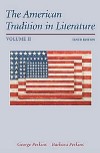In a line of American writers dating back to Edgar Allan Poe and in the milieu of the "arts-for-arts-sake school," E. E. Cummings breaks free from traditional patterns, experimenting with forms, page layout, syntax, and the fracturing of relationships of expected references, modifiers, and grammatical conventions. Superficially, the subject matter and thematic content appear, at least in part, familiar-children at play, conflict in adult relationships, lovers at play, the mutability of life, problems of doubt and faith, and more. As often as not, though, the references to the familiar are never developed beyond allusions that stream in and out of strange, fractured lines. To learn more about these and other key concepts, please consult the Glossary of Key Concepts. |



 2003 McGraw-Hill Higher Education
2003 McGraw-Hill Higher Education